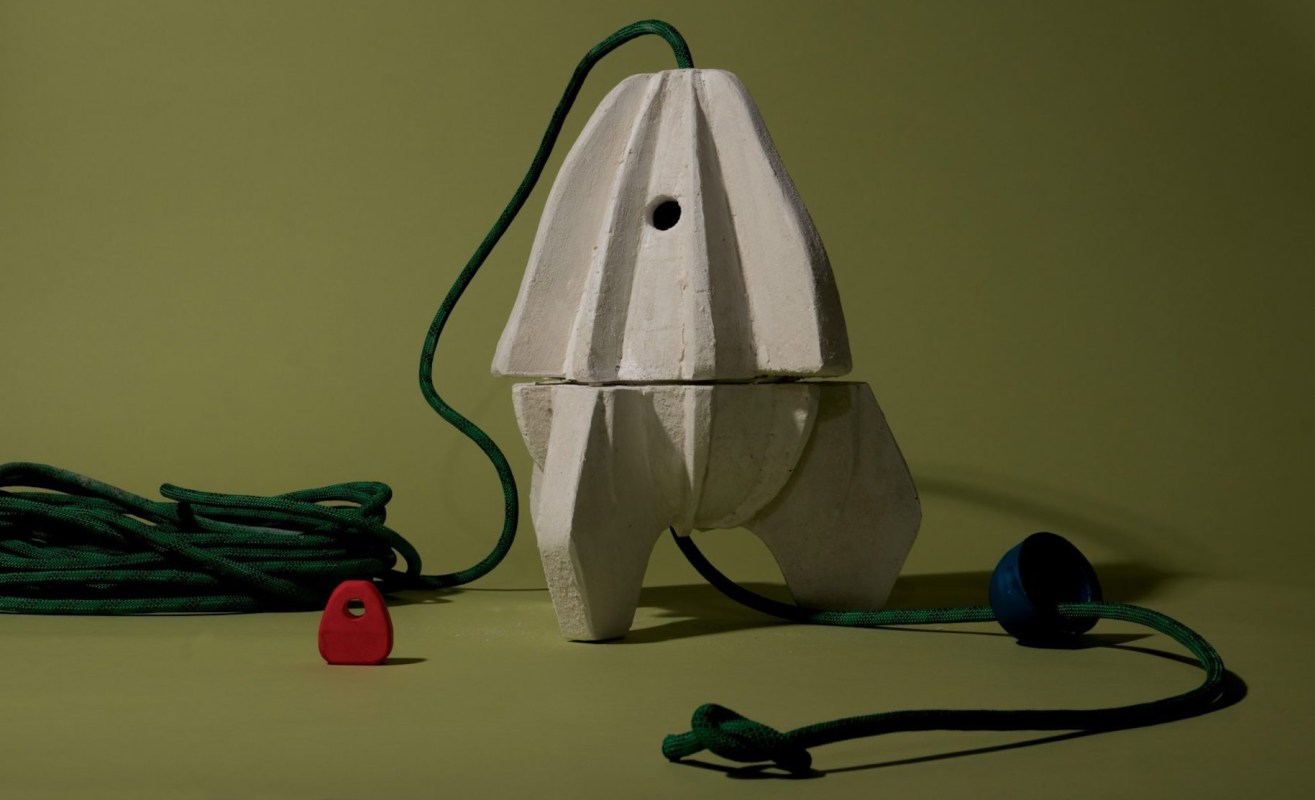You might not expect an online interior and design magazine to be covering an innovation made to help ailing oyster reefs.
But when you see the bio-cement Reef Rocket that industrial designer Mary Lempres has created, you will understand why the smartly designed, sea life-saving combination caught the attention of editors at Dezeen.
Lempres is a Norwegian-American designer who helps brands switch to circular, more planet-friendly supply chains.
"Considering the entire lifecycle of a product to prioritize the circular economy," she wrote on her website.
Reef Rocket is a plant-derived, bio-cement structure about the size and shape of a football, resembling a small rocketship. The structures are placed in the ocean to mimic natural oyster reefs, which help protect coasts from floods, to filter harmful algae from seawater, and to aid biodiversity. They also provide a home for certain creatures, all per Dezeen's report.
What's more, the design is pleasing to the eye, as each rocket looks like a piece of art. Photos shared by the publication show the invention loaded with oysters, which are stuck to the side, fulfilling part of its design when submerged.
It's part of Lempres' mission to use her design talents, along with science and business, to create cleaner "materials systems and products," she said on her website.
Reef Rockets are unique because of their composition. To make them, Lempres, and other experts she consulted with, poured plant enzymes over aggregate created from crushed glass and oyster shells, some from New York restaurants. The plant matter grows structures in the aggregate that forms a cement-like substance, which can be shaped with molds into rockets, sans heat and chemicals, as Dezeen describes it.
"It can be grown in any environment without heat or otherwise burning fossil fuels and is derived from waste products, making it an affordable and scalable alternative to cement," Lempres told Dezeen.
Experts around the world are developing concrete alternatives, as Princeton notes that the industry churns out 4.4 billion tons of air pollution annually. A fungus-based material called mycocrete is one concept being worked on in the United Kingdom to offset traditional concrete use as we develop cleaner ways to build.
For Reef Rocket, Lempres said its growth mimics natural oyster shells and reefs. It's also a boon to reefs and the creatures that depend on them, as aquatic life is greatly impacted by our overheating waters.
"Reef Rocket harnesses the natural process of growing durable minerals to regrow vital reef structures, benefiting humans and our ecology from the worsening effects of climate change," Lempres told Dezeen.
The creation could potentially be applicable to other products down the road.
"This paves the way for a future where hard and durable material can be grown like a crop, regenerating waste rather than polluting our environment," she said to the magazine.
Join our free newsletter for weekly updates on the coolest innovations improving our lives and saving our planet.









